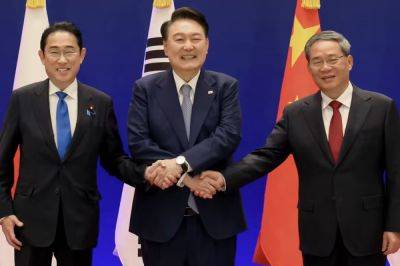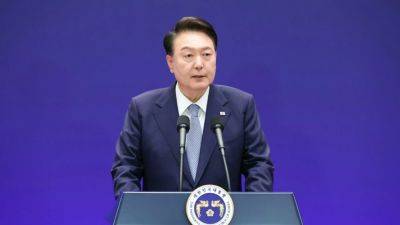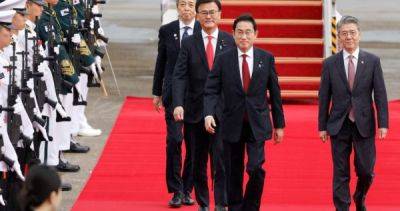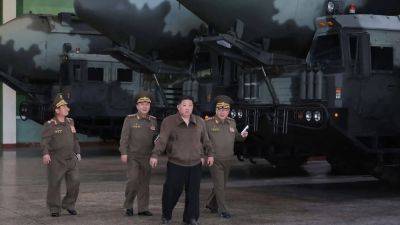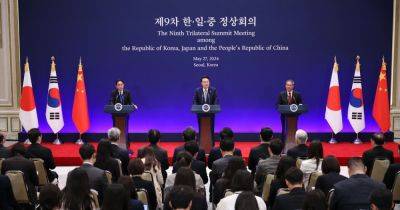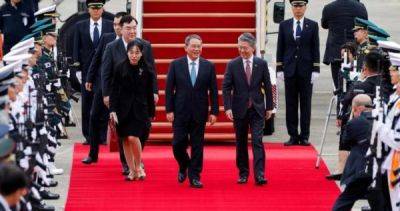Korea’s economy headed nowhere fast under Yoon
TOKYO – The champagne isn’t exactly flowing as South Korea’s Yoon Suk Yeol commemorates the two-year mark of his presidency.
So far, Yoon’s government has no answers for a sliding Korean won that’s increasing inflation amid stagnant wages and near-record household debt.
Instead, Yoon’s Korea has assumed a Japan-like crouch in letting the central bank take the lead on boosting growth and curbing risks.
“The fact that net exports are a core driver of growth with the largest contribution will stay unchanged as inflation keeps putting pressure and real purchasing power among households remains insufficient,” says KB Securities economist Gweon Heejin.
Yet it’s not Yoon’s first 730 days in power that worry many of South Korea’s 51 million people. It’s the next 1,095.
Beset by scandals, infighting and policy paralysis, Yoon risks being remembered as the fifth government in 20 years to pledge major economic change and achieve little.
With each, the sense of urgency has increased as China wins more and more market share in Asia. Yet bold actions in Seoul have been few and far between.
Yoon’s administration is proving to be just as inept about short-term challenges as longer-term ones. For example, he’s been reluctant to help consumers tighten their own budgets to cope with persistent price pressures. Instead, he’s prioritized public debt consolidation.
Nor has Yoon tended to low-hanging fruit reforms — like acting to increase gender equality in the workplace or to detail ways to cut bureaucracy, loosen labor markets and increase productivity.
But the real concern is how Yoon, like his predecessors, is shying away from curbing the power of the family-owned conglomerates, or chaebols, that tower over Asia’s fourth-biggest economy.


